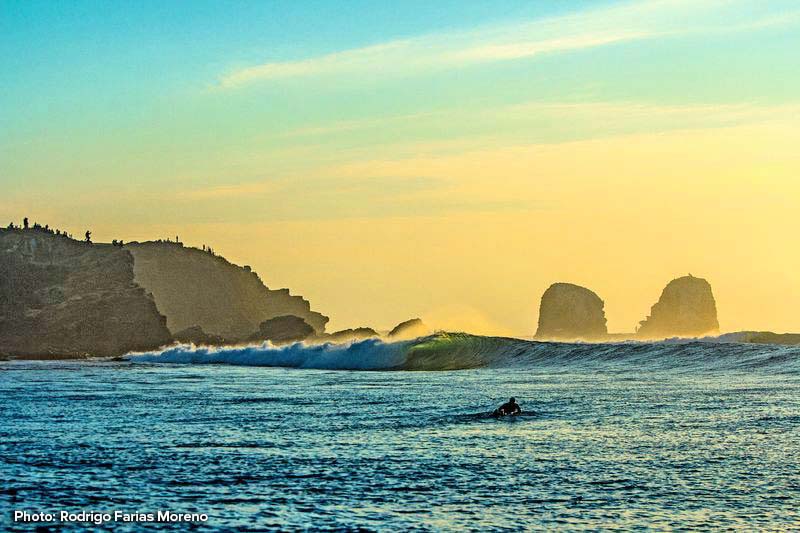Yvon Chounard, a man trying not to leave a big footprint on the earth, already has—in the most environmentally friendly way imaginable. His 2006 memoir, Let My People Go Surfing, sums up one man’s passion for nature, sport and stewarding the planet. Patagonia, the company he created in the 1970s, shows nothing if not relevance and authenticity, decade after decade, generation after generation, from boomers to millennials.
In content marketing, many of us are grappling with how to speak to millennials. What are they looking for? How should we engage them? In short, how do we help our clients remain relevant to their changing audiences, decade after decade, generation after generation?
So I got in touch with Scott Carrington, who heads digital and social media for Patagonia, to try to get a taste of their special sauce. Having been an early adopter of the brand in the ’80s, when they birthed Synchilla, that fluffy, comfy fabric they used in jackets and pullovers (which, by the way, actually warmed, wicked and worked), I wanted to understand how they’ve managed to stay at least as relevant as they were in the ’80s, and how they approached the group who keeps us up at night these days.
Carrington shared that they were in a pretty unique position. Being a premium-priced brand, their core customer is generally in their ’30s and up, but he feels there’s a natural alliance with the millennials. “We’re a little more structured in how we talk to this generation, but it’s an easy conversation because they embody a lot of the same values that the brand was built on. We see the interest. It’s just about getting them the right content and sharing our story.” While the late boomers have always appreciated the longevity of the Patagonia product, the millennials have demonstrated an affinity for buying less and paying more for well-made items and a brand they believe in.
It’s an easy conversation because [millennials] embody a lot of the same values that the brand was built on. We see the interest. It’s just about getting them the right content and sharing our story.
Authenticity is a hallmark of Patagonia, aligning with core millennial values. As interest in climbing and the outdoors in general has exploded, there are a number of non-endemic brands trying to capitalize on this growth with new product, but they’re receiving little traction (no pun intended.) It’s hard to beat the authentic story of Chounard turning his passion for climbing into a company that creates premium products for climbers of all levels and, at the same time, works tirelessly to save the habitat.
Patagonia’s unconventional messages—from their ad after Black Friday 2011, “Don’t Buy This Jacket,” to their recent “Worn Wear” campaign, where they’ve covered the country in a bio-fueled camper repairing people’s worn Patagonia gear on the spot—have engendered the brand to this younger audience. And by the way, such efforts haven’t put a damper on their growing sales figures.
But this is no marketing shtick. The company has consistently proven that they live by their mission statement: Build the best product, cause no unnecessary harm, use business to inspire and implement solutions to the environmental crisis.
Social media is a powerful marketing tool for Patagonia, and Carrington and his team work across all lines of sporting products and company initiatives to develop the right social strategy for each group. Not surprisingly, when interacting with millennials, Instagram and Tumblr have been huge. “Our message is no different than it’s ever been, but maybe we think more about how we present it,” he says. And because selling Patagonia’s values is even more important than selling their product, they have a growing presence on B2B platforms, like LinkedIn, to reach young business people who can make a difference. “We have an opportunity on B2B platforms to share our business practices with emerging leaders and inspire them to challenge business as usual,” says Carrington. For Patagonia, there are many, including working with certified organic cotton, which currently only makes up 1% of cotton used in the industry. And speaking of 1%, they are one of the first companies who joined onepercentfortheplanet, giving away 1% of sales to NGOs, and have given more than $70 million to date.
Inc. magazine attributes, among others, the following values to millennials:
- They have the right to be heard
- They have the right to demand quality products or services
- They have the means to complain or praise your product to the world as a whole
- They have the right to demand higher moral efficacy in the companies they do business with
- They have the right to be individuals
- They have the right to be treated fairly
It’s pretty clear that Patagonia has hit the sweet spot of millennials’ attributes and values, and it’s all about sharing their truths and passions.
One of the most important recent campaigns on Patagonia.com is their video series, connecting true sporting stories to environmental issues and causes. “The Fisherman’s Son” chronicles Ramon Navarro, a fisherman’s son in Chile who grows up to surf some of the biggest waves on the planet, and returns to Chile as a local hero to protect Punta de Lobos from development, with the help of Patagonia and others.
Another video follows climber Josh Ewing who visits the Bears Ears region of Utah for a climb at Indian Creek. He moves to the area soon after and realizes the local archaeology was severely threatened due to drilling and a lack of respect by visitors.
Videos like these reflect the core of the Patagonia brand, showing people excelling at their sport, caring deeply about the places they visit and putting their passions to work for the good of the environment. And importantly, it’s one of many ways that Patagonia has been able to drive funding to environmental causes. Again, it’s simply (or maybe not so simply) getting these truths in front of an empathetic audience.
Our message is no different than it’s ever been, but maybe we think more about how we present it. We want them to chase our prophesies and include them in their prophesies.
Looking back at Inc.’s attributes of millennials, “They have the means to complain or praise your product to the world as a whole” is another that Patagonia respects. While many companies struggle with social damage control and to assuage unhappy customers, Patagonia embraces the debate. “We don’t engage in negative comments, but our audience comes back so fast and defends our position. They know so much about our brand that they can clarify for our company. And if we say something off or have our facts wrong, we own up to it,” says Carrington. “We’re OK with a passionate back and forth.”
So while we may be up at night scratching our heads about engaging millennials, maybe we need to take a page from Patagonia’s book. Let’s have passionate engagement. Let’s be good corporate citizens. Let’s offer good product that customers have had a say in. And, thank you, Mr. Chounard, let’s live a good, authentic story that’s worth sharing.



